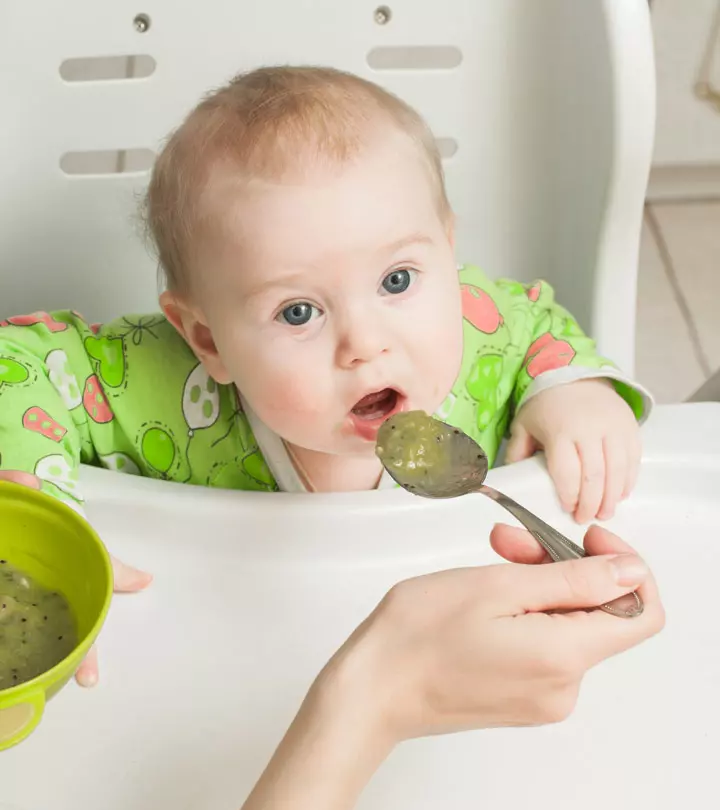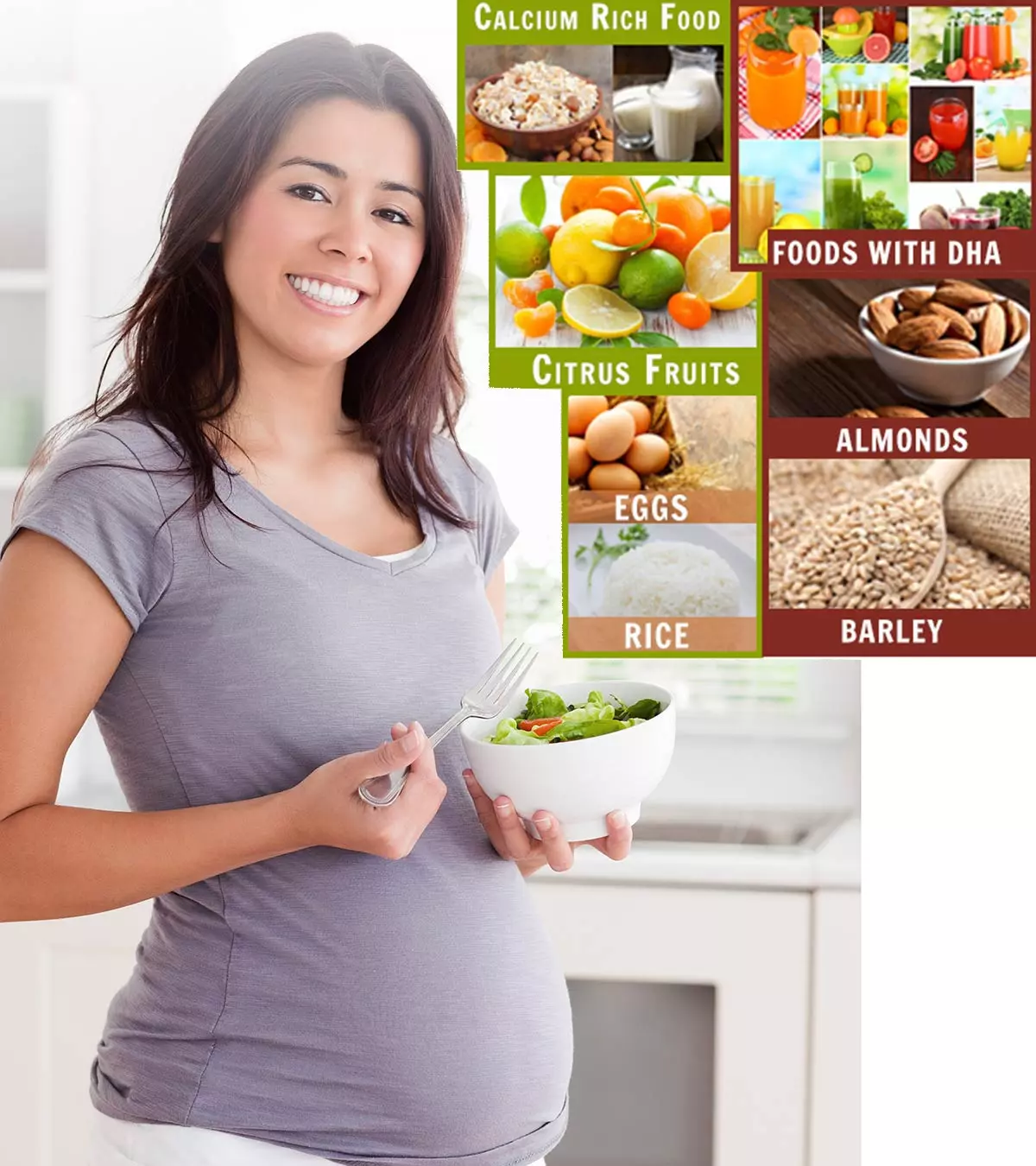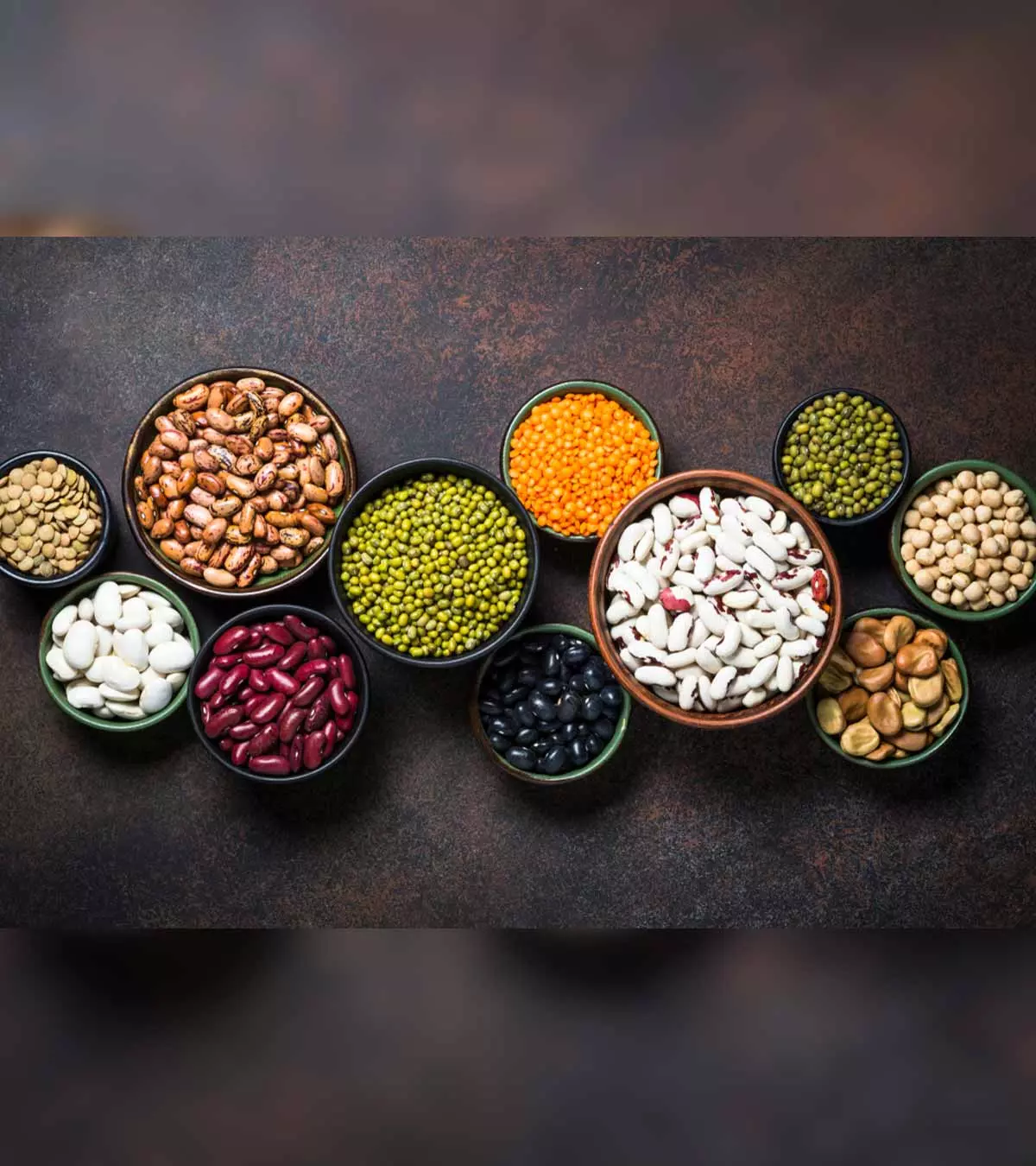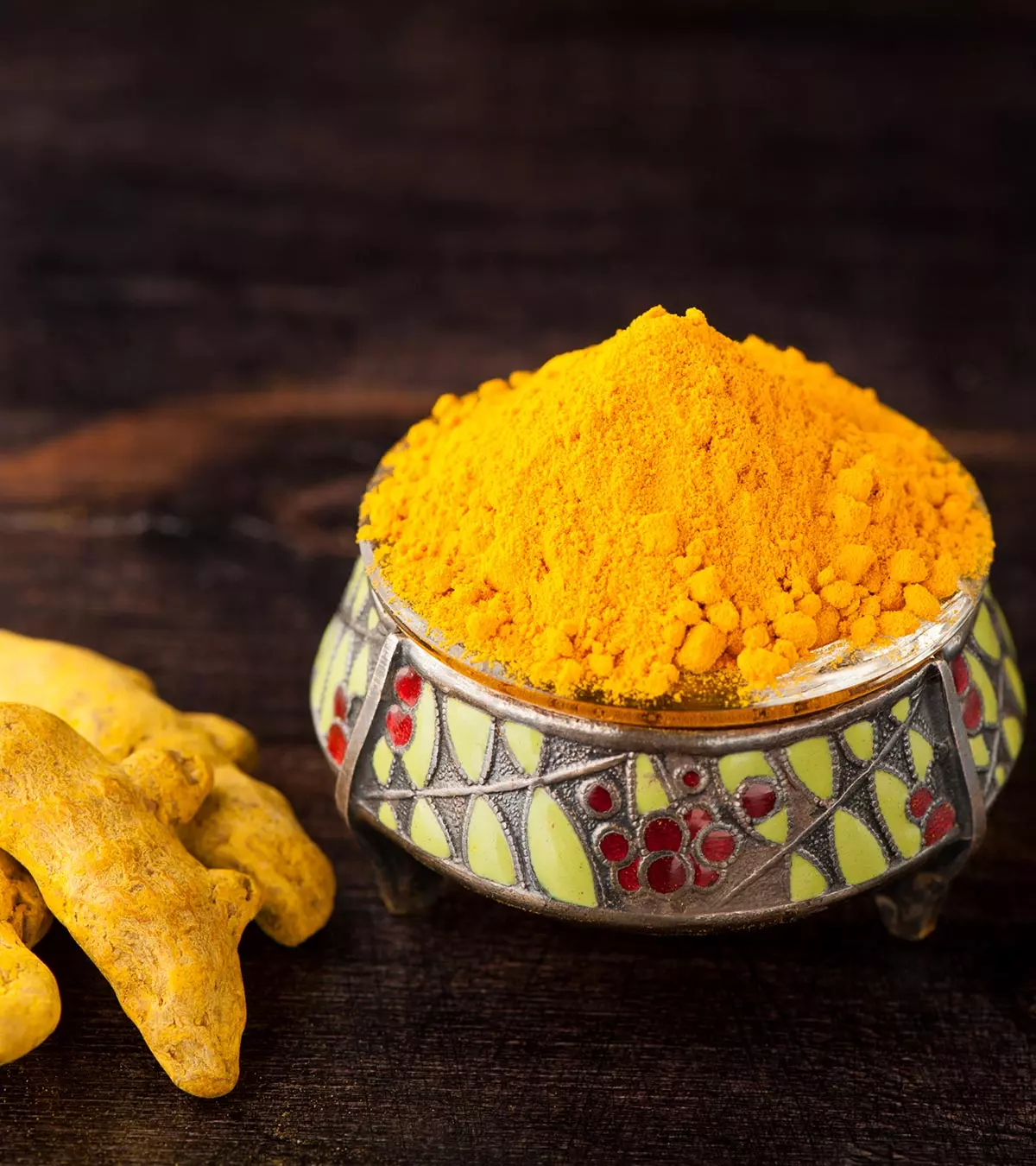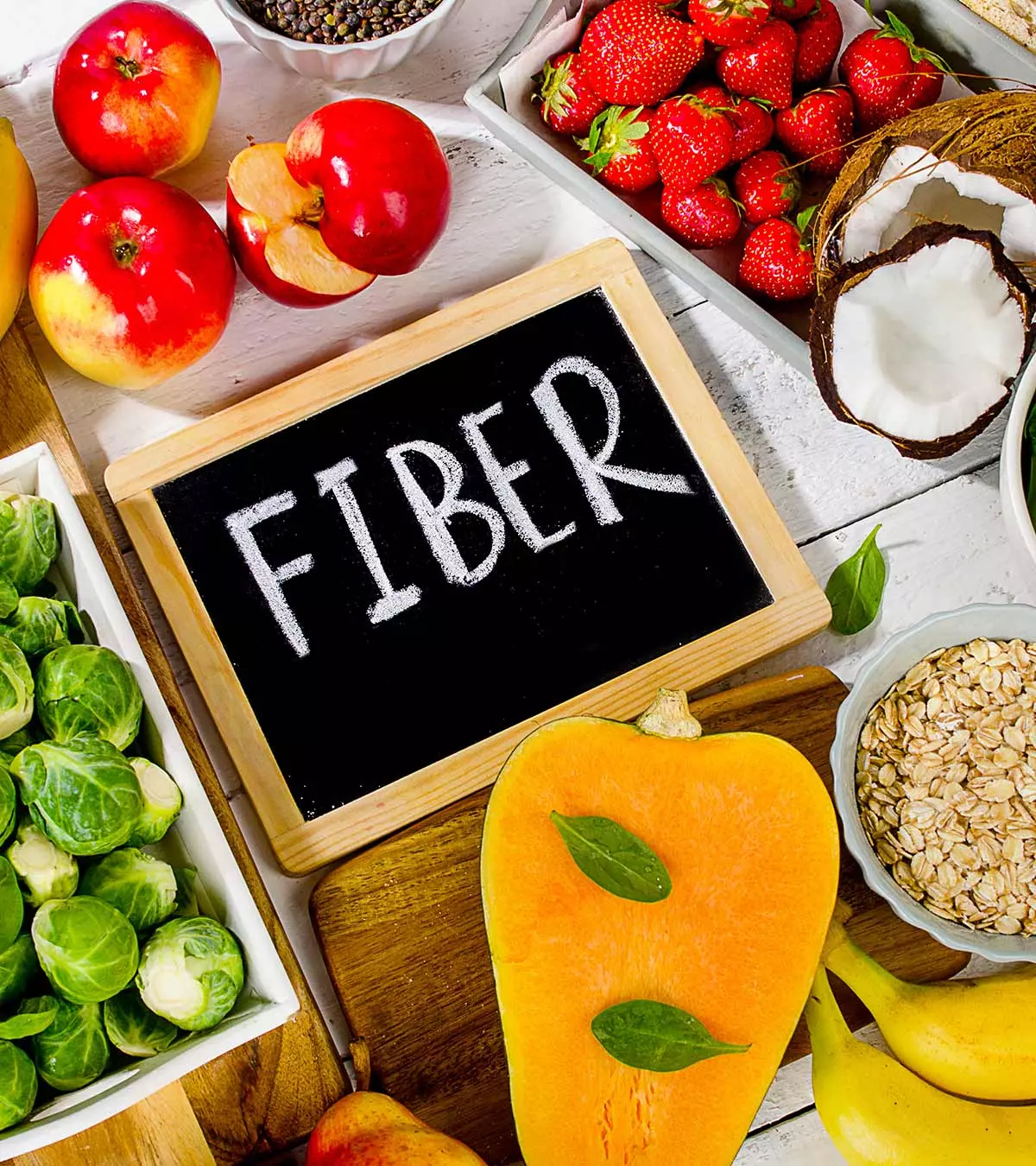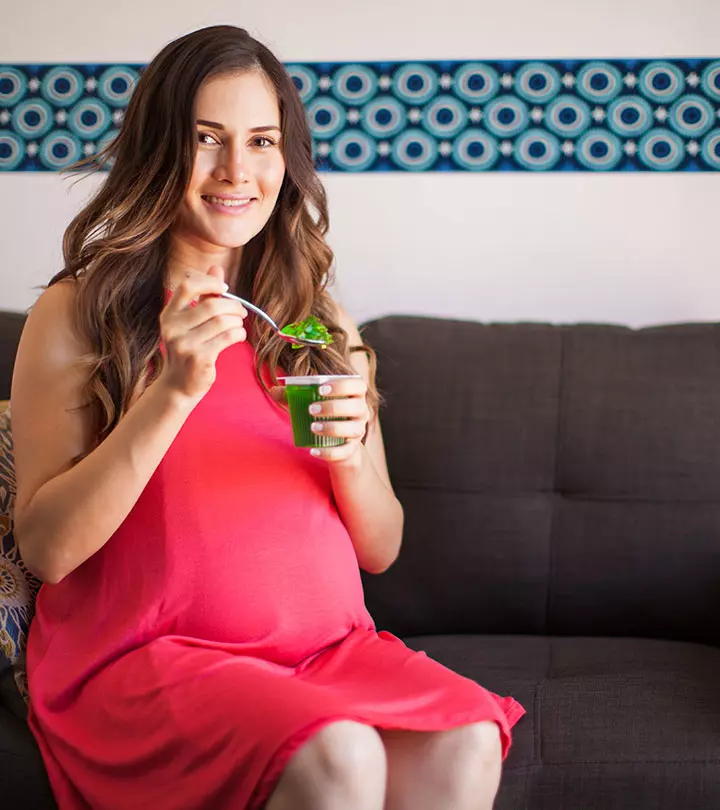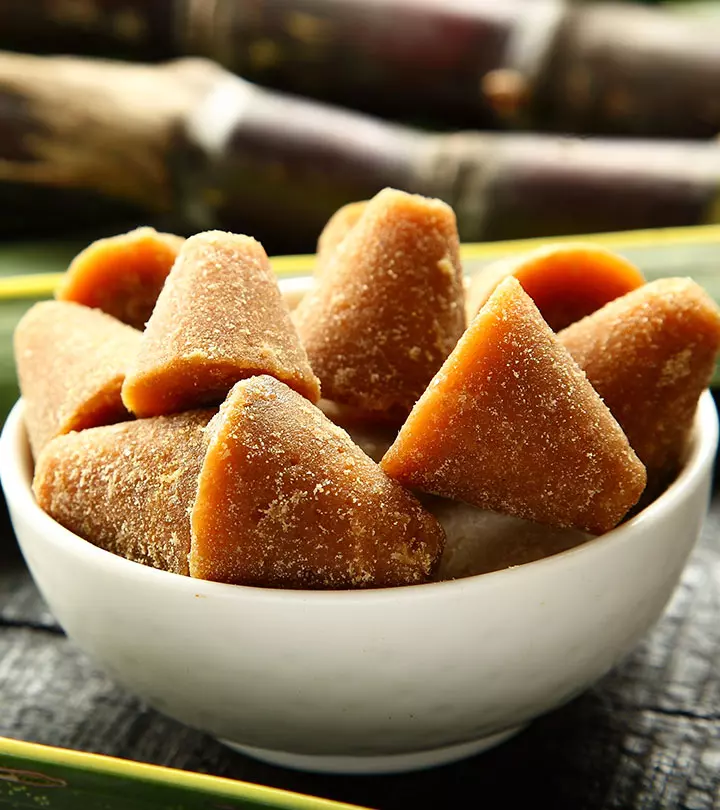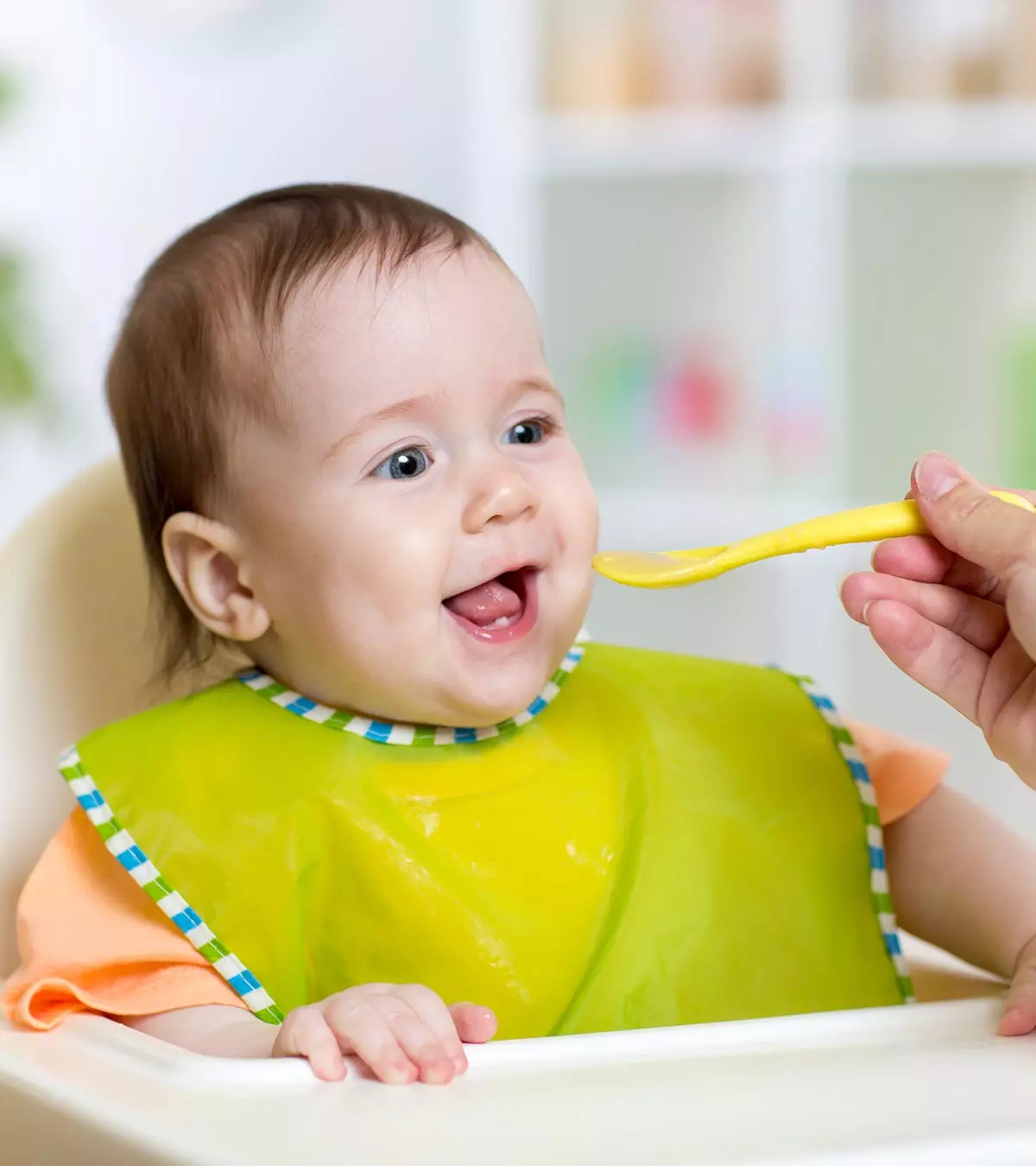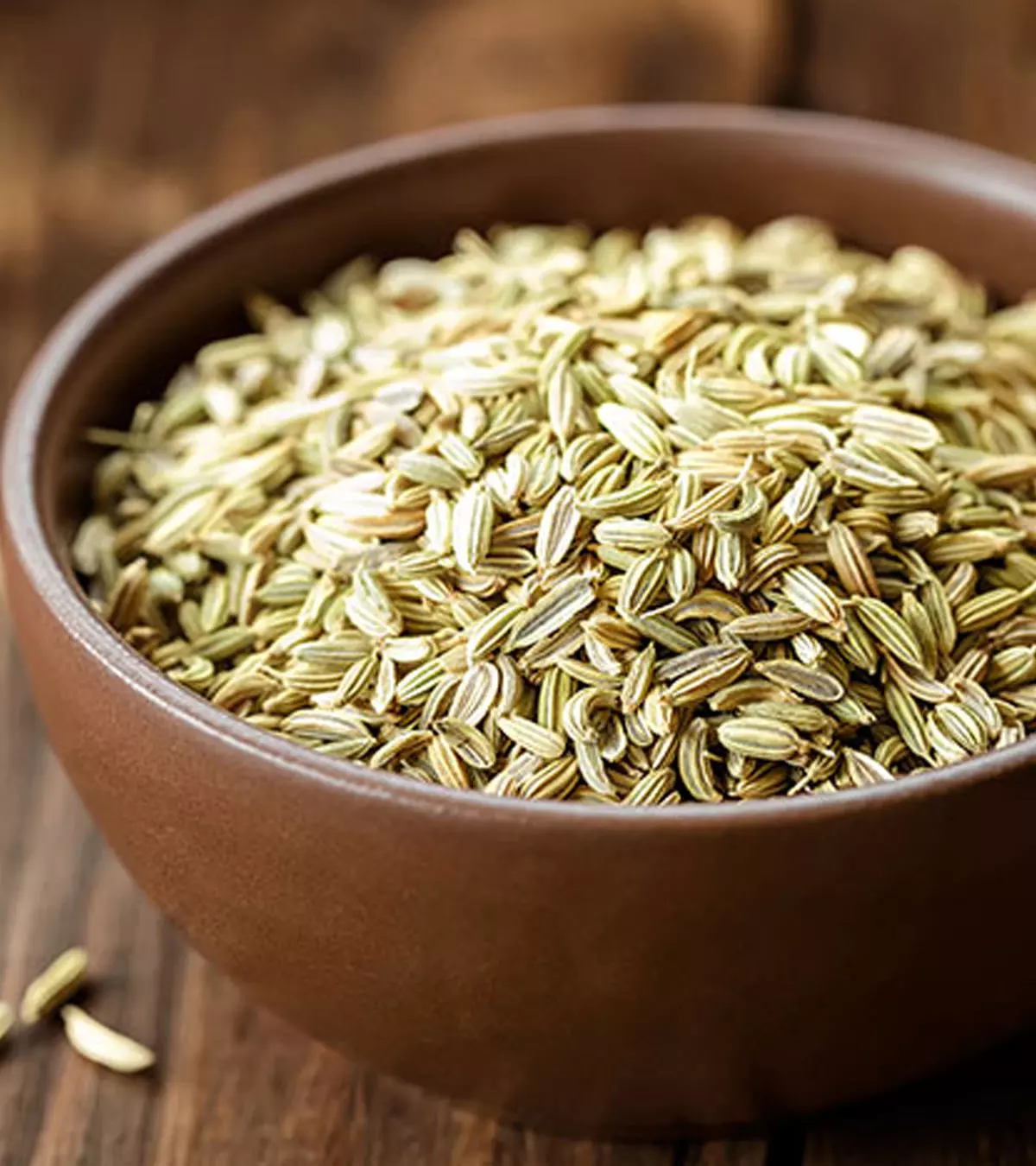
Image: Midjourney/ MomJunction Design Team

Escargot is a non-vegetarian exotic preparation made with cooked and edible land snails and is quite popular among food fanatics. While pregnancy can make you crave all sorts of food, you may wonder if it is safe to eat escargot in pregnancy. It is usually served as an appetizer and is known to be rich in protein and low in fat. Keep reading this post to know more about the nutritional value and safety of consuming escargot when pregnant.
Key Pointers
- Escargot is an appetizer made of edible land snails that may or may not cause allergies in pregnant women. Therefore, consuming it requires clearance from a doctor.
- It can help prevent weight gain by providing high calories and lean protein, as well as vitamins and minerals that aid in blood production and healthy fetal development.
- In addition to being low in carbohydrates, fat-free, and rich in iron, it is a source of magnesium, selenium, potassium, and phosphorus.
What Is An Escargot?
Escargot is a delicacy that consists of cooked and edible land snails.
A popular dish in French cuisine, it is frequently served as an appetizer; it is also enjoyed in other countries in Spain and Portugal. Many restaurants that specialize in the said cuisine offer escargot as part of the appetizer menu. In some cases, the word ‘escargot’ also refers to the snails that belong to species that help prepare the dish (1).
 Did you know?
Did you know?Is It Safe To Eat Escargot While Pregnant?
There is no proven record that clearly states whether or not it is safe to eat escargot during pregnancy. The best way to be safe is to speak to your doctor about it first, and only then resume eating it.
If you are allergic to seafood, you might also be allergic to escargot. If you experienced a food allergy after you ate seafood, you must consume escargot cautiously. If not, there are chances you can develop an allergy. To be safe, avoid eating escargot while pregnant, especially if you suffer from a seafood allergy, to prevent any potential risks.
If you choose to eat escargot while pregnant, buy it from reputable restaurants and confirm with the chef it’s fully cooked. If you are purchasing the ingredients yourself, ensure they come from trusted suppliers who follow food safety standards. Always cook escargot thoroughly to reduce the risk of foodborne illnesses and infections.
 Be watchful
Be watchful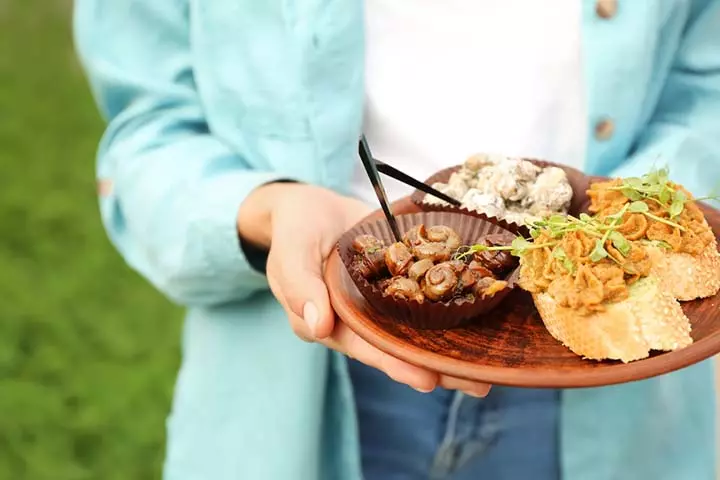
Image: Shutterstock
Benefits Of Consuming Escargot In Pregnancy
Escargot, a gourmet dish made from snail meat, can provide numerous benefits for expectant mothers (2).
- Snail meat is rich in protein, making it a valuable dietary resource during pregnancy.
- Snail meat is low in fats and aligns perfectly with the needs of those seeking a low-fat pregnancy diet.
- As it is a good source of iron, snail meat may aid in preventing iron deficiency anemia during pregnancy.
- Essential fatty acids like linoleic and linolenic acids in snail meat promote overall maternal well-being.
 Health fact
Health factWhile snail meat is a nutritional powerhouse, cautious consumption during pregnancy is imperative due to potential pathogen contamination risks. It’s important to handle and cook the snails properly to ensure the health and safety of both mother and baby.
Escargot For Weight Loss
Once your doctor gives you the go-ahead to eat escargot, you can start consuming it. Also, escargot has the notable benefit of aiding in weight control.
How Does It Keep Your Weight In Control?
Eating escargot can help to keep your weight in check.
- Escargot can prevent excess weight gain and it also helps maintain your current weight. Eating a 100 gm serving of escargot will give you a high of about 90 calories. It will also provide you with about 16 gm of protein, which will help you feel full without adding empty calories.
- Escargot is also a low-carbohydrate food that can satisfy your cravings during pregnancy without causing unnecessary weight gain. The food is fat, sugar, and carbohydrate-free but rich in lean protein. It is also a good source of iron, magnesium, selenium, phosphorus, and potassium.
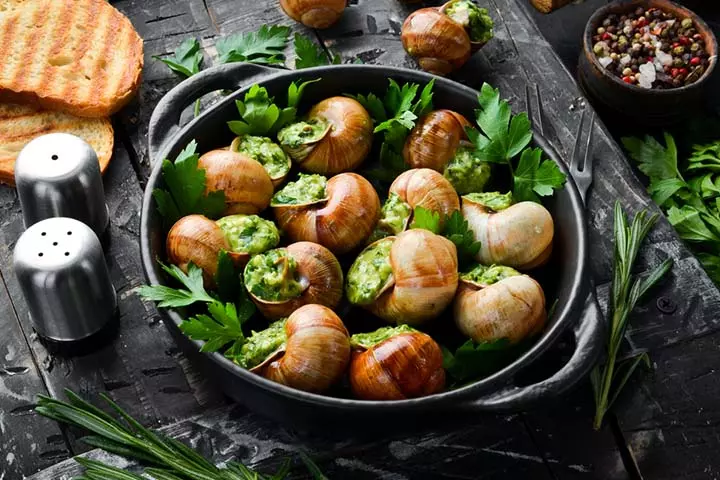
Image: Shutterstock
- When you eat escargot, you also get a rich amount of vitamins and minerals that are essential for your as well as your unborn baby’s overall health and development. Escargot is rich in iron, magnesium as well as potassium, which will provide ample nutrition, and help in producing extra blood required during the gestation.
Nutritional Value Of Escargot
| Amount Per 100 gm | |
| Calories 90 | |
| % Daily Value* | |
| Total Fat 1.4 g | 2% |
| Saturated fat 0.4 g | 2% |
| Polyunsaturated fat 0.3 g | |
| Monounsaturated fat 0.3 g | |
| Cholesterol 50 mg | 16% |
| Sodium 70 mg | 2% |
| Potassium 382 mg | 10% |
| Total Carbohydrate 2 g | 0% |
| Dietary fiber 0 g | 0% |
| Sugar 0 g | |
| Protein 16 g | 32% |
| Vitamin A | 2% | Vitamin C | 0% |
| Calcium | 1% | Iron | 19% |
| Vitamin D | 0% | Vitamin B-6 | 5% |
| Vitamin B-12 | 8% | Magnesium | 62% |
| *Per cent Daily Values are based on a 2,000 calorie diet. Your daily values may be higher or lower depending on your calorie needs. | |||
Frequently Asked Questions
1. Can escargot cause miscarriage?
There is no scientific evidence linking escargot to miscarriage. However, if you have experienced allergic reactions to seafood such as fish or prawns during pregnancy, it is best to avoid escargot. If you choose to eat it, ensure it is thoroughly cooked to prevent parasitic infections, as both allergies and infections can negatively impact your pregnancy.
2. Can escargot cause food poisoning during pregnancy?
Undercooked or stored escargot can lead to food poisoning, which can be particularly harmful during pregnancy. Pregnant women are advised to be cautious when consuming raw or undercooked foods, including escargot.
3. Can I eat escargot from a restaurant while pregnant?
Eating thoroughly cooked, hygienically prepared escargot from a reputed restaurant may not pose any health risks during pregnancy.
4. Can I eat canned escargot while pregnant?
Canned escargots may not be cooked thoroughly and may require additional cooking. Overconsumption of canned food may have negative effects during pregnancy as they may contain high amounts of salt and other additives.
5. Can escargot help with pregnancy-related anemia?
Escargot is a good source of iron, which may contribute to your recommended daily iron intake. However, anemia during pregnancy will require treatment through doctor-prescribed supplements.
6. What should I do if I accidentally eat undercooked escargot during pregnancy?
If you have unknowingly eaten undercooked escargot while pregnant, monitor yourself closely. If you develop symptoms like nausea, vomiting, itching, or abdominal pain, contact your healthcare provider right away. Some infections may not show immediate signs, so it is best to inform your doctor even if you feel fine.
There is not enough information on the safety and effects of consuming escargot during pregnancy. You may talk to your doctor before adding escargot into your diet and avoid it if you are allergic to seafood. It is a good source of protein, makes you feel fuller with fewer calories, and can be added to a weight-loss diet. Escargot is also rich in vitamins and minerals, such as potassium, magnesium, and iron, and is also a good source of fatty acids. These nutrients are essential for maternal health and overall fetal development.
Infographic: Taboos Associated With Snail Consumption During Pregnancy
Escargot may be a commonly consumed seafood in some parts of the world. However, its intake during pregnancy is surrounded by several bizarre cultural taboos and misbeliefs. This infographic lists some of these interdictions from various cultures. So dive in and discover what people across cultures think about snail intake during pregnancy.
Some thing wrong with infographic shortcode. please verify shortcode syntaxIllustration: Is It Safe To Eat Escargot During Pregnancy?
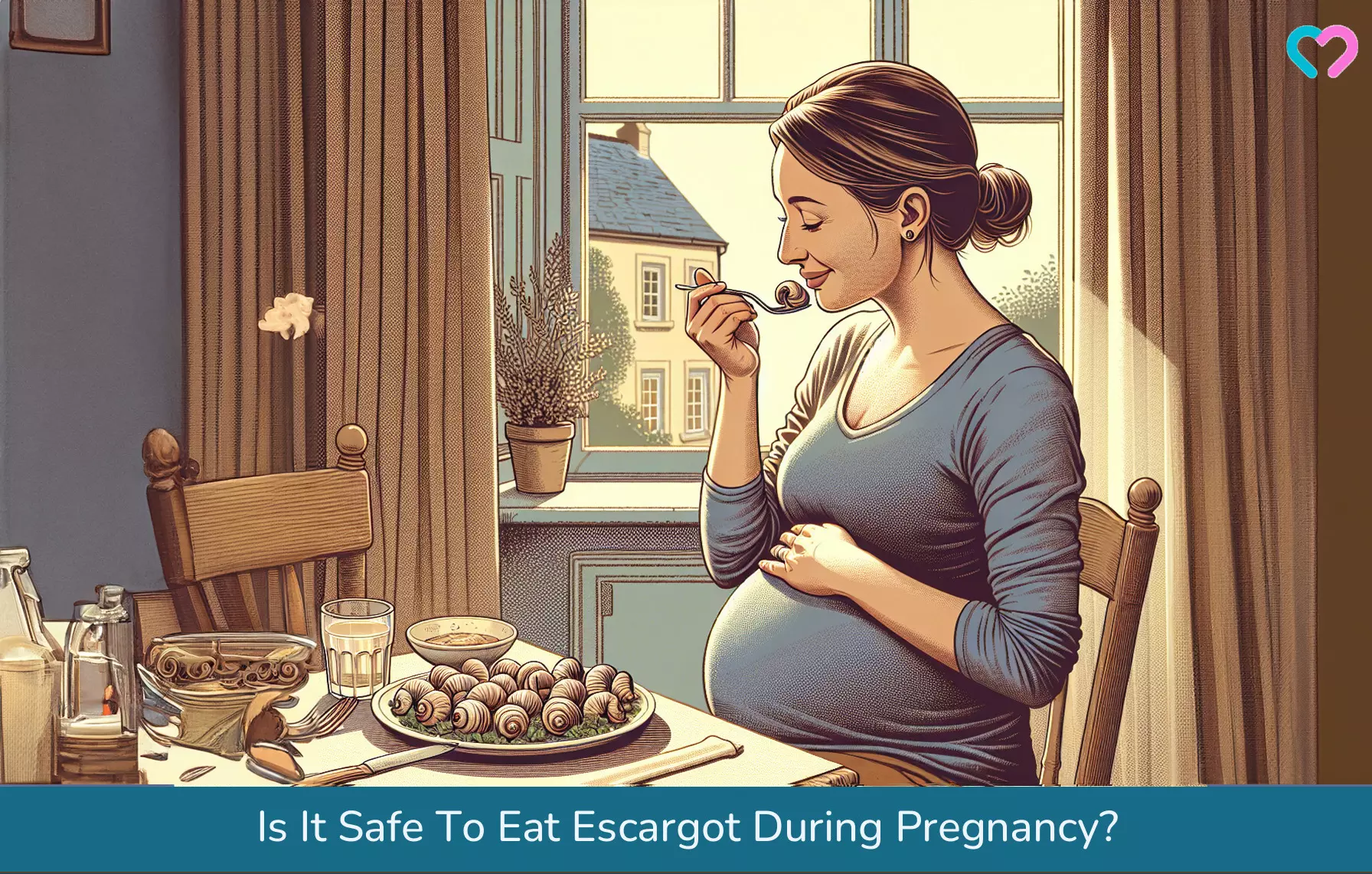
Image: Dalle E/MomJunction Design Team
References
- Maria A. Pissia et al.; (2025); Raw materials from snails for food preparation.
https://www.sciencedirect.com/science/article/pii/S2666833521000241 - Snails as meat source: Epidemiological and nutritional perspectives.
https://academicjournals.org/journal/JMA/article-full-text-pdf/4E940029622
Community Experiences
Join the conversation and become a part of our nurturing community! Share your stories, experiences, and insights to connect with fellow parents.
Read full bio of Dr. Shikha Sharma
Read full bio of Ria Saha
Read full bio of Swati Patwal
Read full bio of Lorraine Teron






